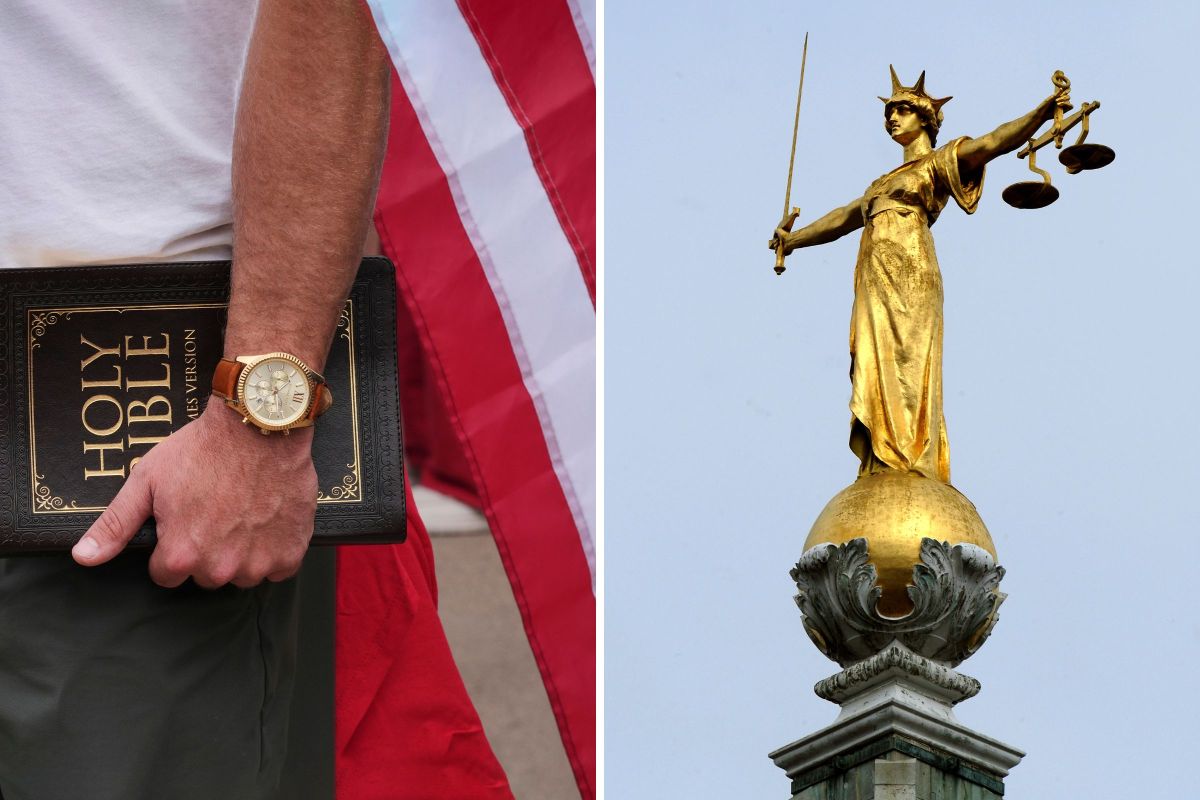Top Stories
Maine Court Hears Urgent Case on Mother’s Church Rights

URGENT UPDATE: The Maine Supreme Judicial Court is currently deliberating on a groundbreaking case that could reshape parental rights and religious freedom in the state. The court is reviewing a controversial custody order that prohibits a mother from taking her 12-year-old daughter to church or exposing her to Bible teachings, a decision that has ignited fierce debates about constitutional rights.
This case, Bickford v. Bradeen, stems from a December 13, 2024 ruling by the Portland District Court, which granted the child’s father, Matthew Bradeen, exclusive control over all religious decisions regarding their daughter. The court found that teachings from the mother’s church, Calvary Chapel, could cause “psychological harm” to the child, citing distress from church imagery and messages.
Emily Bickford is arguing that this ruling constitutes an unconstitutional violation of her rights as a parent. Her attorney, Mathew Staver, claims the restrictions amount to a “total veto” on her ability to engage in religious education with her daughter. Staver emphasized that there is no evidence of abuse or neglect that would justify such a sweeping order. “That cannot be a compelling interest,” he stated during the oral arguments held on November 13, 2025.
The implications of this case are enormous. If the Maine Supreme Judicial Court affirms the lower court’s decision, it could set a national precedent on how courts evaluate claims of psychological harm in custody disputes involving religious practices. The justices are grappling with difficult questions about the limits of judicial authority when it comes to religious upbringing and the balance between parental rights and state interests in protecting children.
As the justices consider both sides of the argument, they are questioning where to draw the line regarding judicial intervention in religious matters. One justice raised concerns about the potential conflict between the “best interest of the child” standard and the principles of religious freedom.
Matthew Bradeen’s attorney, Michelle King, defended the lower court’s ruling, asserting that it was justified to protect the child from “substantial harm” based on expert testimonies. However, Staver challenged the credibility of the expert witness, calling the testimony biased and insufficient to warrant such restrictive measures.
The Maine Supreme Judicial Court is expected to announce its ruling in the coming months, which will clarify how courts can weigh psychological harm claims against constitutional protections for parental rights and religious freedoms. The outcome of this case is crucial, as it could influence how similar disputes are handled across the nation.
Stay tuned for updates on this developing story as the court’s decision could have significant ramifications for parents’ rights and religious practices nationwide.
-

 Science4 weeks ago
Science4 weeks agoInterstellar Object 3I/ATLAS Emits Unique Metal Alloy, Says Scientist
-

 Science1 month ago
Science1 month agoResearchers Achieve Fastest Genome Sequencing in Under Four Hours
-

 Politics1 month ago
Politics1 month agoAfghan Refugee Detained by ICE After Asylum Hearing in New York
-

 Business1 month ago
Business1 month agoIconic Sand Dollar Social Club Listed for $3 Million in Folly Beach
-

 Health1 month ago
Health1 month agoPeptilogics Secures $78 Million to Combat Prosthetic Joint Infections
-

 Business1 month ago
Business1 month agoMcEwen Inc. Secures Tartan Lake Gold Mine Through Acquisition
-

 Lifestyle1 month ago
Lifestyle1 month agoJump for Good: San Clemente Pier Fundraiser Allows Legal Leaps
-

 Science1 month ago
Science1 month agoMars Observed: Detailed Imaging Reveals Dust Avalanche Dynamics
-

 Health1 month ago
Health1 month agoResearcher Uncovers Zika Virus Pathway to Placenta Using Nanotubes
-

 World1 month ago
World1 month agoUS Passport Ranks Drop Out of Top 10 for First Time Ever
-

 Entertainment1 month ago
Entertainment1 month agoJennifer Lopez Addresses A-Rod Split in Candid Interview
-

 Business1 month ago
Business1 month agoSan Jose High-Rise Faces Foreclosure Over $182.5 Million Loan









